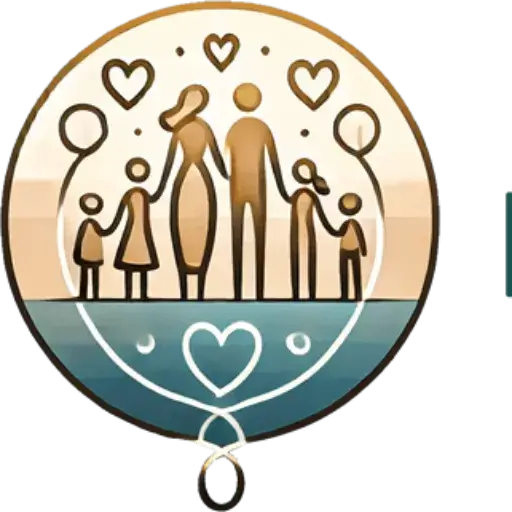Personal Health Information Protection Act (PHIPA)
Protecting Your Privacy
The Personal Health Information Protection Act (PHIPA) ensures that your personal health information is handled with the highest level of confidentiality and care. Personal health information encompasses any data that identifies you and relates to your health and healthcare, including health history, healthcare services, providers, substitute decision-makers, health card numbers, and other personal identification details.

Examples of Personal Health Information
Personal health information can be recorded in various forms, including spoken or written, and may include:
- Health Records and History: Detailed accounts of your medical history and current health status.
- Case Management Records: Documentation related to the management and coordination of your health services.
- Service Delivery Assessments: Evaluations related to the services provided to you.
- Health Care Delivery: Information on the health services you receive.
- Health Services: Details of ongoing or past health services.
- Lab and Test Results: Results from medical tests and laboratory work.
- Health Care Providers: Information about the professionals involved in your care.
- Health Care Payments and Eligibility: Data on payments made for health services and your eligibility for such services.
- Body Donations: Information related to the donation of any body part or bodily substances, including testing and examination results.
- Health Care Number (OHIP): Your health insurance number.
Collection
Your Privacy is Our Priority
We are committed to respecting your privacy and protecting your personal health information, as mandated by PHIPA (2004).

Why We Collect Your Personal Health Information
Family Counselling Therapy and its service partners collect personal health information to ensure accurate identification and efficient service delivery each time you interact with us. This information is accessible only to program staff involved in your care, including healthcare professionals and support roles like health records management or financial services.
Personal health information may be used to:
- Accurately Identify Your Record: Ensure precise identification of your client record for seamless healthcare delivery.
- Provide Effective Services: Tailor services and treatments to your specific health needs, including assessments and test results.
- Comply with Legal Requirements: Gather necessary information such as your Ontario Health Card Number (OHIP) for service processing and funding.
- Improve Service Quality: Evaluate and enhance the quality and efficiency of our services.
- Support Research and Education: Provide anonymized data for research approved by an ethics board and support educational activities, ensuring privacy and confidentiality.
How We Collect Personal Health Information
We may collect personal health information directly from you or from authorized representatives such as parents, legal guardians, or substitute decision-makers. Information may also be gathered from other sources with your consent or as required by law. This information is essential for promoting health, preventing disease, and providing appropriate services.
Information We Collect May Include:
- Personal Details: Name, address, contact information, date of birth.
- Identification Numbers: Ontario Health Card Number, Social Insurance Number.
- Healthcare Data: Medical history, services received, case management details.
- Support Services: Information related to health and social services support.
Why We Collect Personal Health Information
The primary reasons for collecting personal health information include:
- Provision of Care: Facilitating the delivery and management of health care services.
- Program Planning and Delivery: Developing and implementing health programs and services.
- Referral and Counseling: Arranging referrals and providing supportive counseling.
- Health Protection and Awareness: Promoting health and monitoring public health.
- System Administration: Managing and administering the healthcare system, including compliance with specific acts.
- Research and Statistics: Conducting research and gathering statistical data.
How We Use Personal Health Information
We use your personal health information to deliver quality health care and support services. This includes:
- Public Health: Enhancing community health initiatives.
- Paramedic Services: Managing emergency medical services.
- Long-Term Care: Providing care for long-term residents.
- Senior Services: Supporting services for seniors.
Disclosure
When We Share Your Information
With your consent, personal health information may be shared to ensure comprehensive care across services. Disclosure may also occur to public health programs or other Family Counselling Therapy services as needed to manage risks or support public health initiatives.

Who Can Act on Your Behalf
Substitute decision-makers can include:
- Parents or Guardians: For minors or incapacitated individuals.
- Authorized Individuals: Those with written authorization from you.
- Estate Trustees: For handling the affairs of deceased individuals.
- Legally Entitled Persons: Those with authority under PHIPA.
Parent’s Access to Children’s Health Information
Parents generally have access to their children’s health information under PHIPA, with specific provisions for children aged 16 and over or where confidentiality expectations exist.
Protecting Your Personal Health Information
We are dedicated to safeguarding your personal health information against unauthorized access and ensuring secure storage and disposal. This includes training our staff and requiring third parties to adhere to privacy standards.
Accessing and Correcting Your Personal Health Information
To access or correct your personal health information, follow these steps:
- Submit a Written Request: Provide detailed information to locate your records.
- Send to the Relevant Department: Address your request to the appropriate Family Counselling Therapy service.
- Response Time: Expect a response within 30 days, with possible extensions as per PHIPA.
Fees for Access Requests
- Public Health, Long-Term Care, Adult Day Services: Administration fee of $30; additional $0.25 per page after the first 20 pages.
- Paramedic Services: Administration fee of $75.
Fees may be waived in cases of financial hardship.
Health Information Custodians
For concerns or complaints, contact:
- Public Health
- Long-Term Care
- Family Counselling Therapy Paramedic Services
- Senior Services Development
You have the right to file a complaint with the Information and Privacy Commissioner of Ontario if you believe your personal health information has been mishandled.
Educational Resources
Feel free to adjust or expand upon any specific details as needed!
For further guidance, the Information and Privacy Commissioner of Ontario offers educational videos on PHIPA, providing real-life scenarios and applications of the Act.


